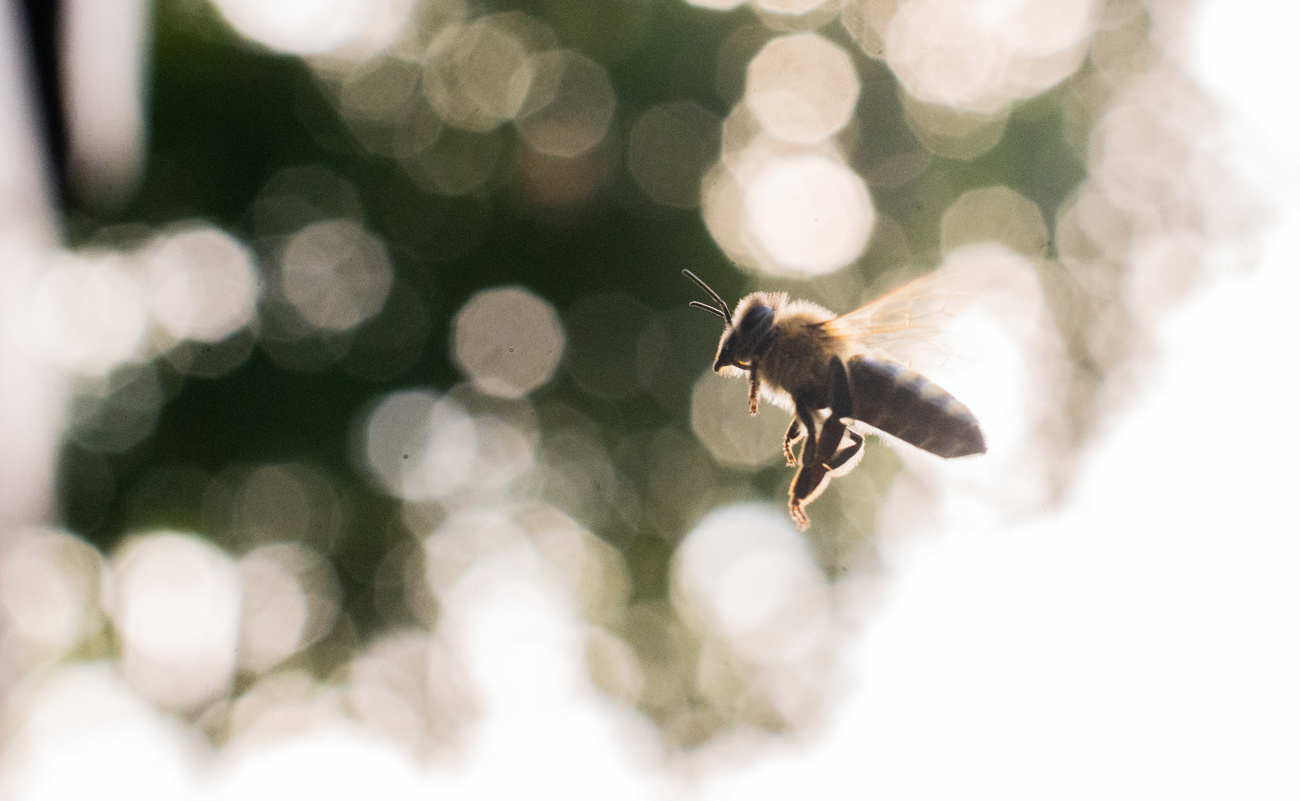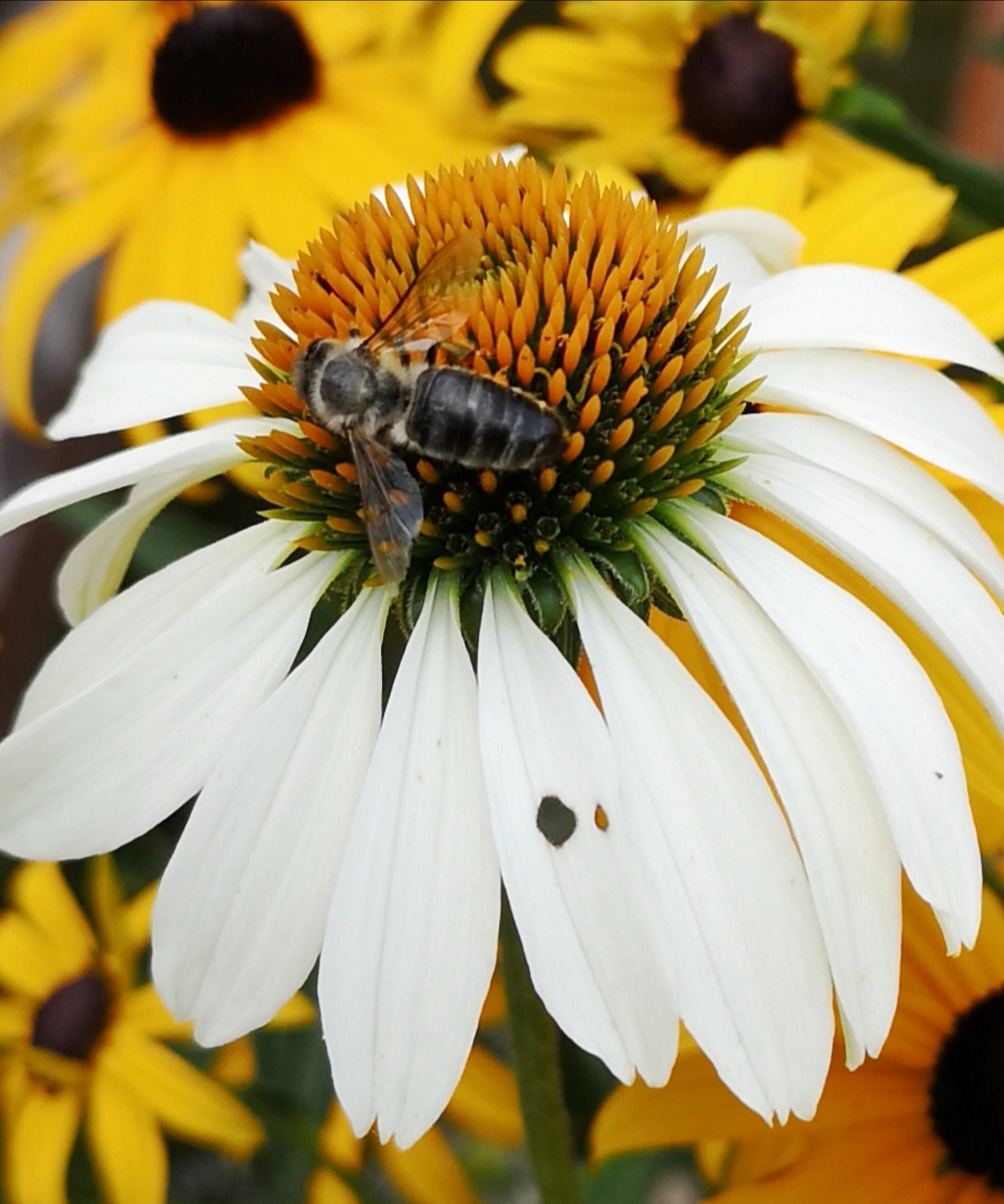
Worst winter in a decade for Swiss bee colonies

Over a fifth of bee colonies in Switzerland did not survive the winter of 2021-2022, the national umbrella organisation for beekeepers reported on Wednesday.
The 1,384 beekeepers surveyed by apisuisse reported total colony losses of 21.4% over the winter: that’s up from 14.2% the previous year, and the worst rate in a decade.
The causes of the decline were mainly viruses transmitted by the parasitic varroa mite, as well as bad weather in 2021 – notably a cold and wet spring, and a stormy summer – which limited the access of bees to nectar and pollen.
The regions most affected were largely in the north of the country, apisuisse said.
The decrease comes after a particularly meagre honey harvest in 2021, which beekeepers also blamed on the bad weather.
The organisation added that more, and more varied, flower species would help bees to access more food – this goes for both wild bees and honeybees. “This is why apisuisse is committed, both politically and through its own projects, to promoting a more flower-filled Switzerland”, it said.

More
Switzerland’s battle of the bees

In compliance with the JTI standards
More: SWI swissinfo.ch certified by the Journalism Trust Initiative






























You can find an overview of ongoing debates with our journalists here . Please join us!
If you want to start a conversation about a topic raised in this article or want to report factual errors, email us at english@swissinfo.ch.